Civil Discourse
Nixon and Watergate on Firing Line
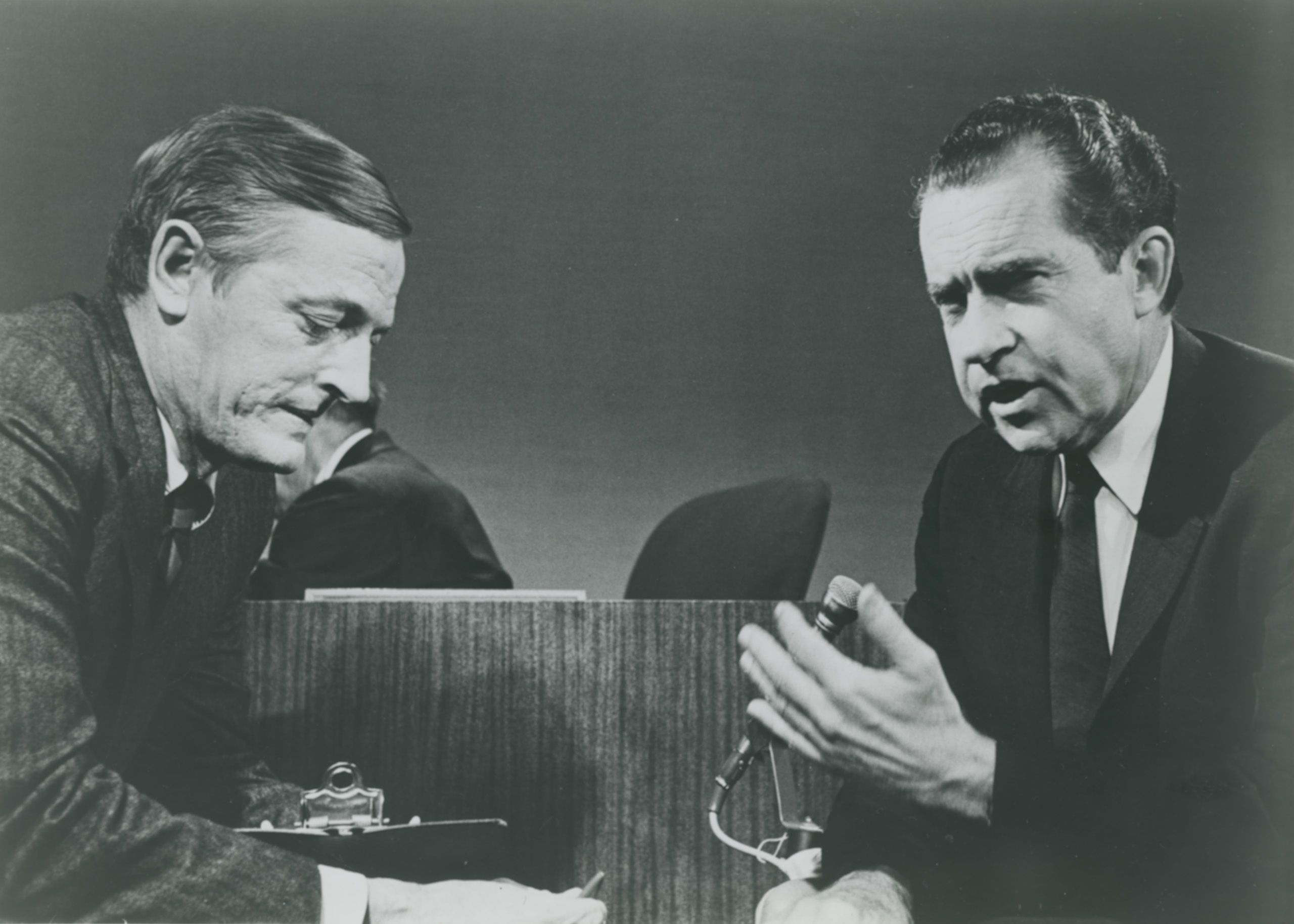
“Everybody learned a long time ago not to try to predict what’s going to happen in Watergate. You’re always surprised at every turn.”
Carl Bernstein on Firing Line, July 9, 1974
A note on historical language: Please note that some language in the following archival material may be culturally insensitive or offensive to some viewers. It is presented as it exists in the original documents for the benefit of research. The material reflects the culture and context in which it was created. More information available at: Statement on Descriptive Practices and Potentially Harmful Language.
Richard Nixon (1913–94) served as the 37th president of the United States from January 20, 1969, until August 9, 1974, when his role in the Watergate scandal and probable impeachment prompted his resignation. Nixon’s presidency saw many accomplishments, including the establishment of the Environmental Protection Agency, the end of the Vietnam War, and the Apollo 11 moon landing. However, Nixon’s administration began to crumble when members of his reelection team broke into the Democratic National Committee headquarters at the Watergate office complex in Washington, DC, on June 17, 1972. “Will President Richard Nixon be impeached?” was the question that captivated the country—and Firing Line—as the Watergate scandal built to a climax in 1974. As revelations about the scandal mounted, host William F. Buckley Jr. and his guests wrestled with the legal, moral, and political dimensions of Nixon’s actions and the ensuing cover-up. Fifty years after the Watergate break-in, these episodes continue to offer insights on the political climate of America during that tumultuous time.
“The Future of the GOP”
Richard M. Nixon
September 14, 1967

“In changing those things that are wrong in America, we must not destroy the things that are right. That to me is the essence of true conservatism.”
— Richard Nixon
Richard Nixon appeared on Firing Line in September 1967 to discuss the state of politics and the future of the Republican Party of the United States. By this time, Nixon had already run for president in 1960 and lost to John F. Kennedy. Although Nixon hadn't yet announced that he was running for president in the upcoming 1968 election, his televised conversation with Buckley about the future of the Republican Party gave him a platform to reach a national audience. During the conversation, Nixon discusses his thoughts on the American public’s disenchantment with Democratic candidates in recent elections, and references Reagan’s recent gubernatorial victory in California. Nixon and Buckley also talk about the differences between the Republican and Democratic parties, covering topics including private enterprise, the intellectual community, and political party unity.
“The Future of the GOP” with Richard M. Nixon, taped on September 14, 1967 Program 069
“The Republican Party and Mr. Nixon”
George H. W. Bush
May 3, 1974
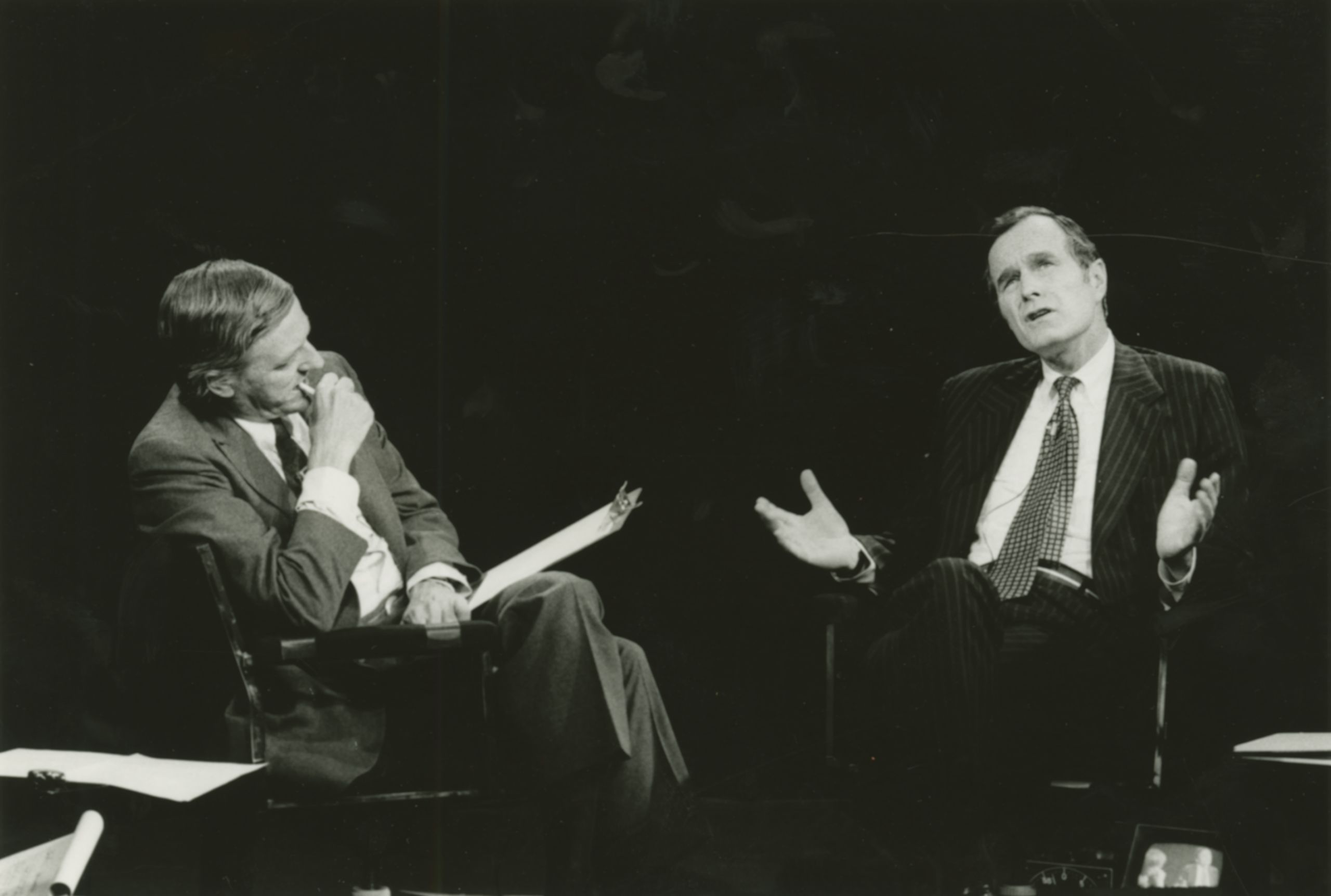
“My view is it is wrong for the president to resign, it is wrong for him to be forced out of office. The system has got to work; the system will work in fairness.”
— George H. W. Bush
“The Republican Party and Mr. Nixon” with George H. W. Bush, tape on May 3, 1974, Program S0134
In May 1974, the future of the Nixon administration was uncertain. With midterm elections approaching, there was considerable concern about the stability of the Republican Party's position in Congress, prompting Buckley to invite the chair of the Republican National Committee, George H. W. Bush (1924–2018), as a guest on his show. At the time, Bush was known for his roles as a businessman, congressman, and ambassador to the United Nations. He would go on to be the director of the CIA, and vice president and president of the United States. During their discussion, Buckley presses Bush on a few hypothetical scenarios, but Bush is hesitant to speculate. Regarding whether Nixon will resign, however, Bush states, “I don't think it's in the makeup of the man.”
“The Limits of Journalistic Investigation”
Carl Bernstein and Bob Woodward
July 9, 1974
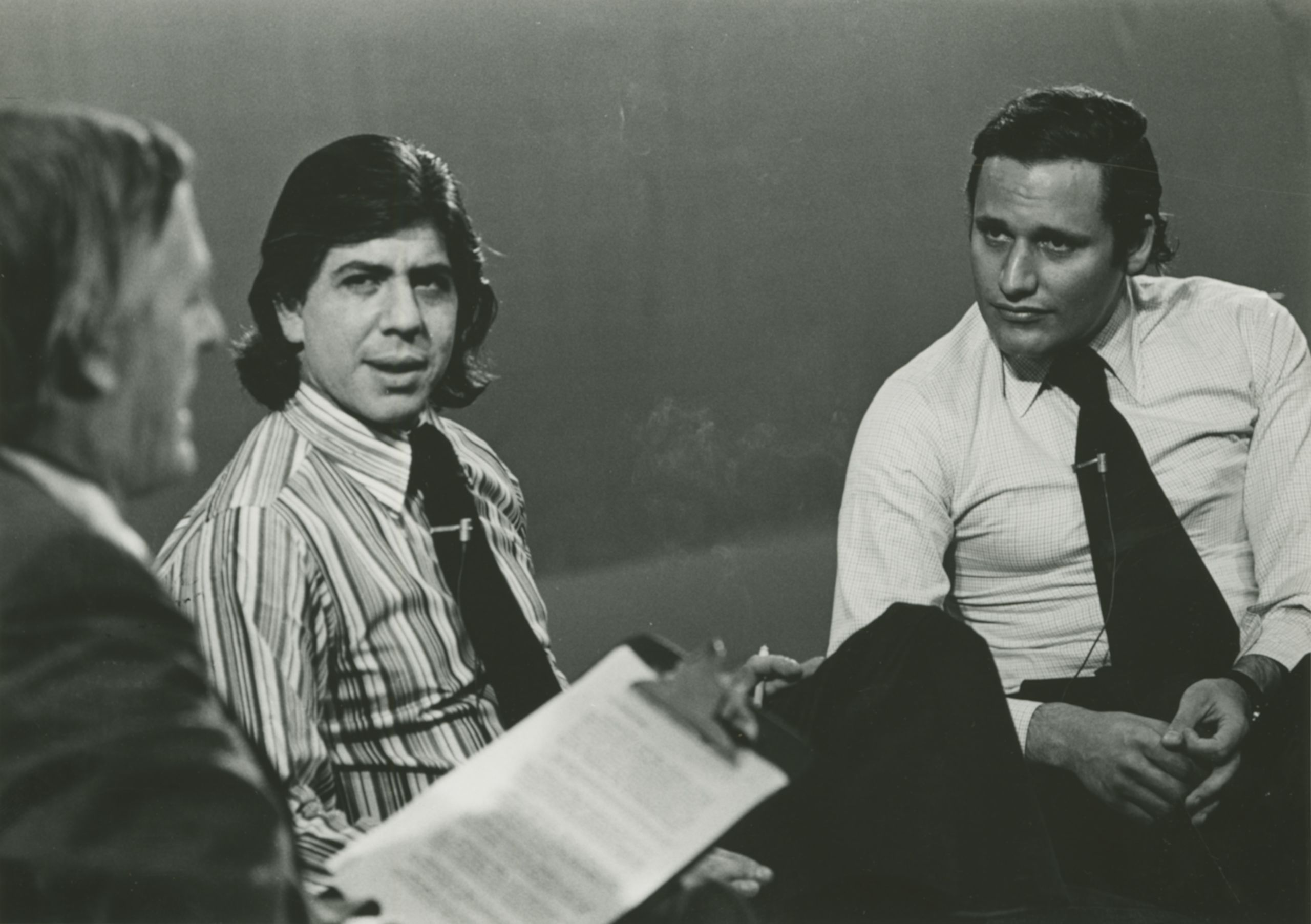
“Nothing has happened like this on this scale, with this kind of intensity and scope.”
— Carl Bernstein
Washington Post reporters Carl Bernstein (b. 1944) and Bob Woodward (b. 1943) first broke the Watergate story in the summer of 1972. Bernstein and Woodward appeared on Firing Line two years later, in the wake of publishing All the President's Men—a memoir of their investigative journalism related to Watergate. The episode was recorded at the height of the scandal, with seven former aides to President Nixon having been indicted by a grand jury for obstruction of justice after the release of edited transcripts of taped conversations secretly recorded in the Oval Office. By the end of the month, the House Judiciary Committee had issued three articles of impeachment against Nixon. Nixon resigned on August 9, 1974.
“The Limits of Journalistic Investigation” with Carl Bernstein and Bob Woodward, taped on July 9, 1974, Program S0144
“The Nixon Experience and American Conservatism”
James L. Buckley
September 4, 1974
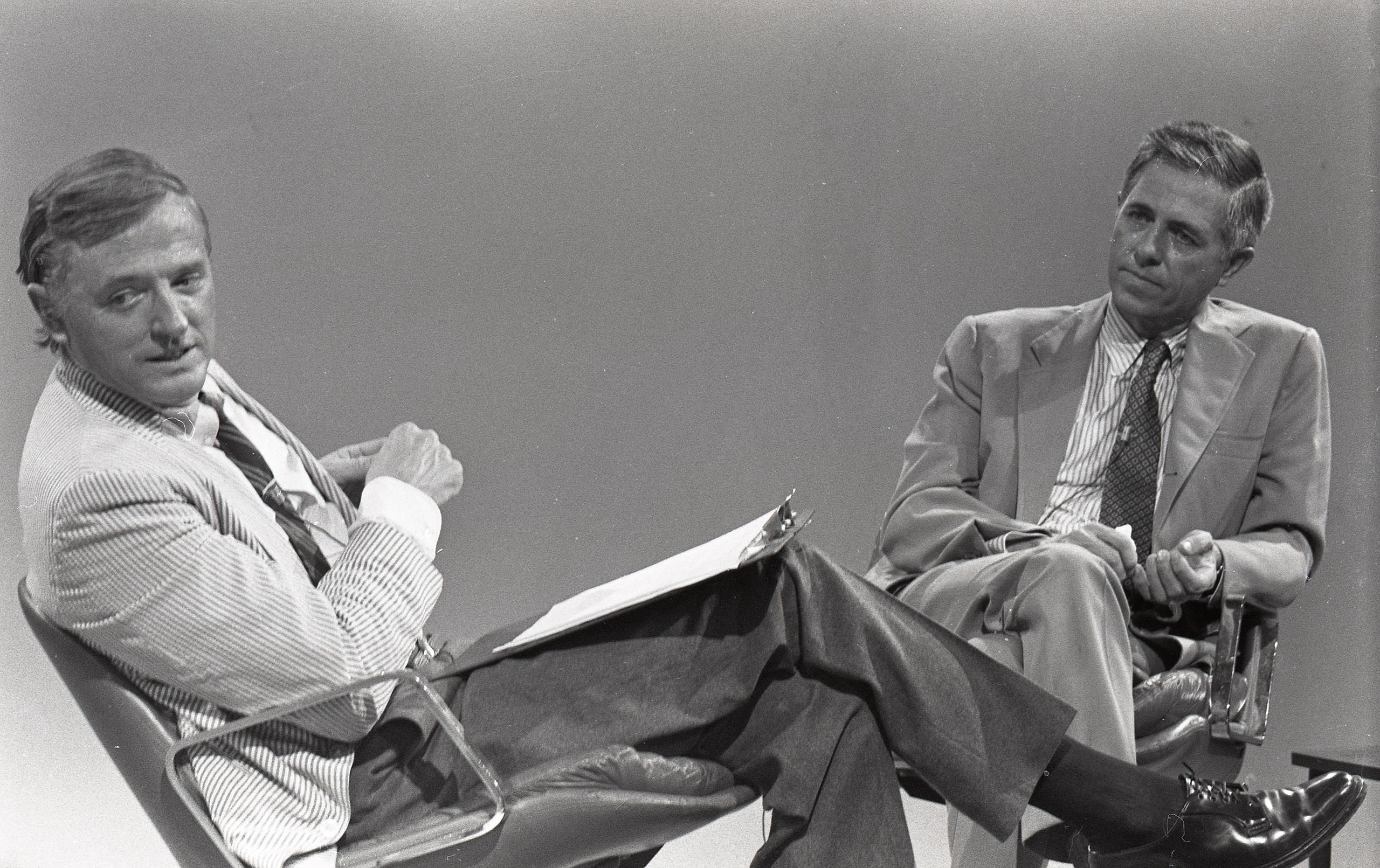
“There was no joyful solution to this whole situation we found ourselves in.”
— James L. Buckley
“The Nixon Experience and American Conservatism” with James L. Buckley, taped on September 4, 1974, Program S0152
Senator James Buckley (b. 1923), William F. Buckley Jr.’s brother, appeared on Firing Line a month after Nixon resigned from the presidency. Senator Buckley had encouraged Nixon to step down as early as March of that year—a stance that alienated many fellow Republicans on Capitol Hill and throughout the country. “There were many others who knew exactly what I was trying to say and who agreed with me—unfortunately, more of them privately than publicly,” James Buckley explained. The brothers discussed the details of Watergate against the larger background of its effects on the balance of power in Washington, the president’s ability to conduct foreign policy under the cloud of domestic scandal, and the possibility that Nixon’s disgrace would damage conservatism’s prospects.
“Subversion and the Law”
W. Mark Felt and Roy M. Cohn
September 20, 1976
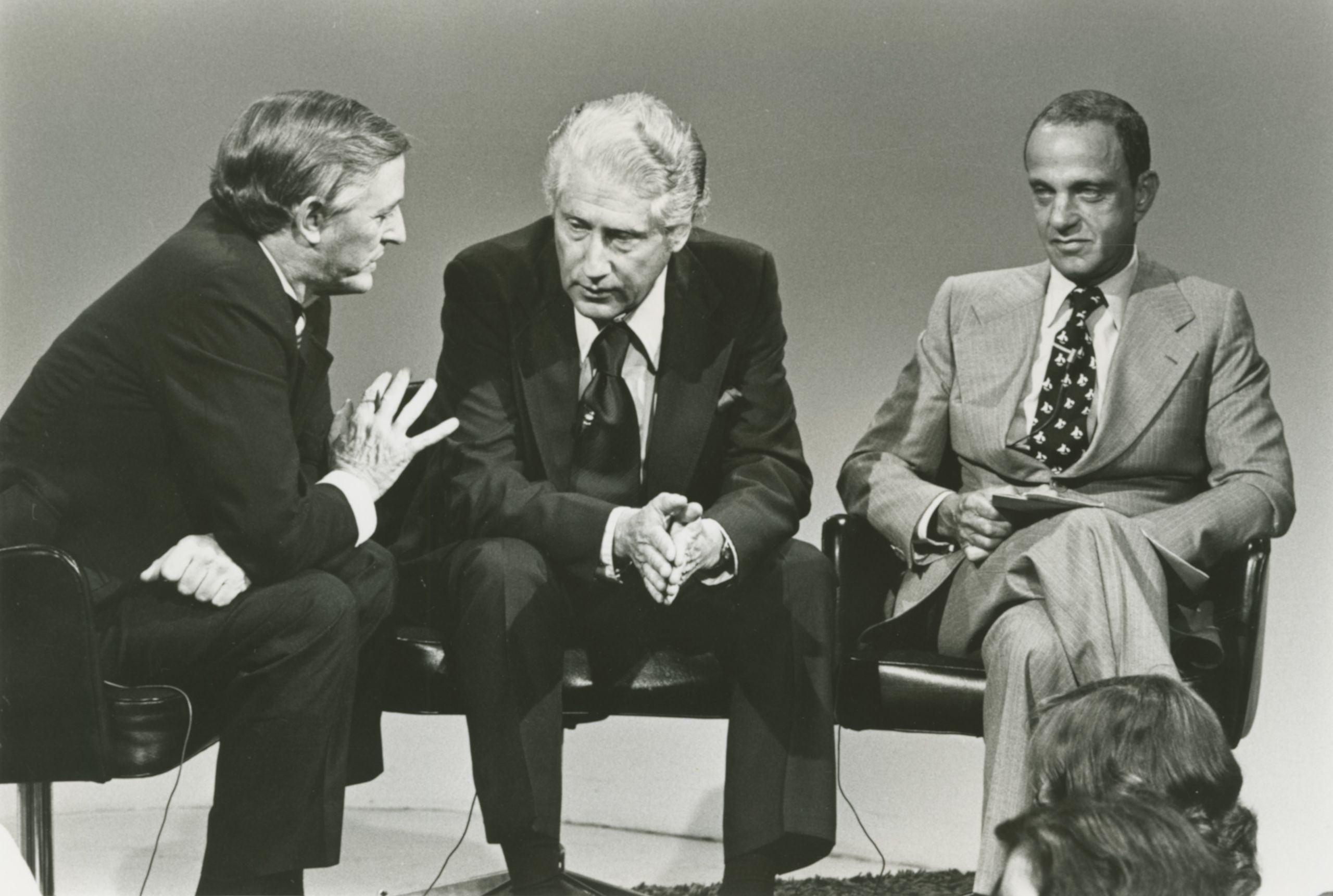
When Mark Felt (1913–2008) appeared on Firing Line in 1976 with lawyer Roy Cohn (1927–1986), he was under scrutiny for ordering FBI agents to illegally break into homes without a search warrant during his time at the agency. Associate director of the FBI during the Watergate scandal, Felt had retired from the bureau in 1973, after 30 years of service. The episode focuses on the actions of the FBI during Felt’s tenure; no one knew at the time that Felt was also journalists Carl Bernstein and Bob Woodward’s crucial Watergate informant code-named “Deep Throat.”
Cohn was an infamous lawyer and public figure best known as the prosecuting attorney in the 1951 trial of Julius and Ethel Rosenberg for charges of espionage—which led to the couple’s executions in 1953—as well as Senator Joseph McCarthy’s chief counsel during his anti-Communist hearings. During the episode, Cohn is adamant in defending Mark Felt and his colleagues at the FBI. However, Felt and FBI deputy assistant director Edward S. Miller would later be found guilty for their roles in unconstitutional break-ins of US citizens’ homes, unrelated to Watergate. They were pardoned by President Ronald Reagan on January 30, 1981.
“What happened in Watergate was done for plain political motives; what has been done by the FBI—which I say turned out 99 percent correct, 99 percent right—was done with the best of intent and with a wonderful track record, which certainly excuses a record of 100 percent perfection.”
— Roy Cohn
“Subversion and the Law” with W. Mark Felt and Roy M. Cohn, taped on September 20, 1976, Program S0247
“G. Gordon Liddy: An Enigma”
G. Gordon Liddy
January 11, 1978
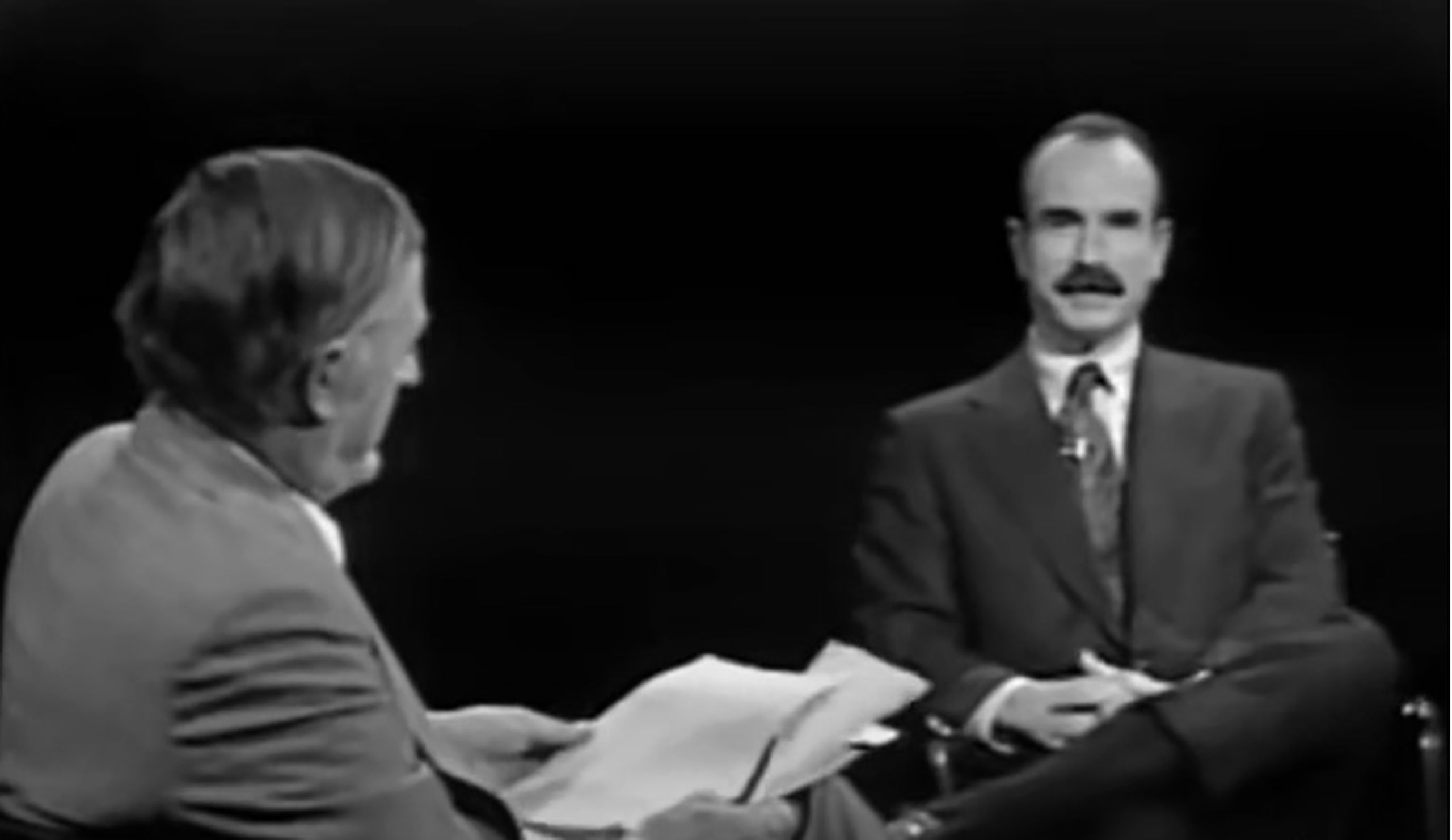
“There could be another set of circumstances where a president might call upon others to undertake certain actions which are malum prohibitum and it would be done.”
— G. Gordon Liddy
“G. Gordon Liddy: An Enigma” with G. Gordon Liddy, taped on January 11, 1978, Program S0307
In 1971 G. Gordon Liddy (1930–2021) began working for Nixon’s official reelection campaign, the Committee to Re-elect the President (CRP). In May and June 1972, Liddy and former CIA officer E. Howard Hunt organized the break-in and wiretapping of the Democratic National Committee headquarters at the Watergate complex in Washington, DC. On June 17, five burglars were caught. They, along with Liddy and Hunt, were eventually convicted of conspiracy, burglary, and illegal wiretapping. Liddy was also convicted for refusing to testify to the Senate Watergate Committee, which is the main topic of this Firing Line discussion. For his role in the Watergate scandal, Liddy was sentenced to 20 years in prison and fined $40,000. President Jimmy Carter commuted Liddy’s sentence, and he was released after being incarcerated for four and a half years. Liddy’s appearance on Firing Line occurred a mere three months after his release from prison.

Unless otherwise noted, all collection material shared in this presentation is part of the Firing Line broadcast records housed at the Hoover Institution Library & Archives, Stanford University.
The Hoover Institution Library & Archives has placed copies of these works online for educational and research purposes. If you would like to use any of these works, you are responsible for making your own legal assessment and securing any necessary permission. If you have questions about this resource or have concerns about the inclusion of an item, please contact the Hoover exhibits team:
Contact Us
For more information about rights and permissions please visit,
https://www.hoover.org/library-archives/collections/get-help/rights-and-permissions.
© 2022 by the Board of Trustees of Leland Stanford Junior University.